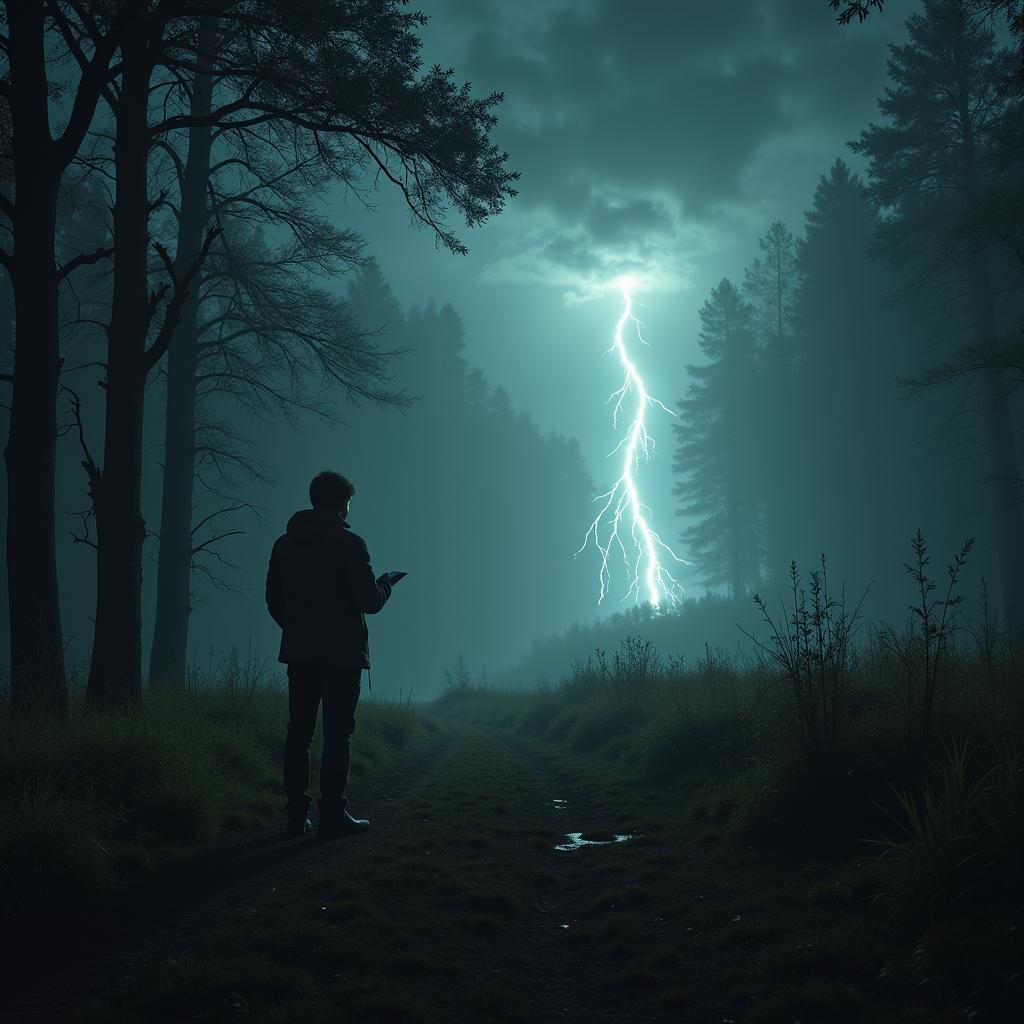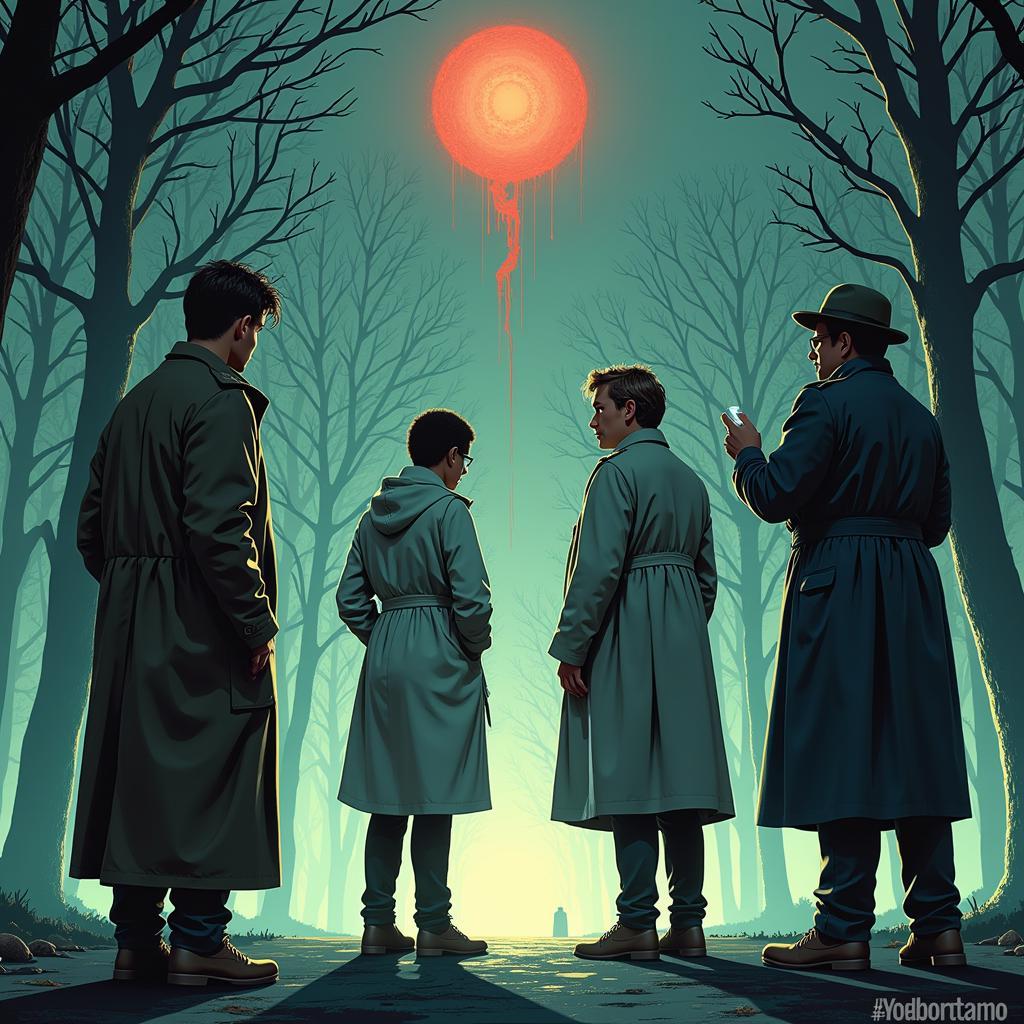Researchers Reflexivity plays a crucial role in paranormal investigations. It’s the process of critically examining one’s own beliefs, biases, and assumptions and how they might influence the research process. In a field as subjective and open to interpretation as paranormal research, acknowledging and addressing this reflexivity is paramount for maintaining rigor and pursuing objective truth. It’s not just about gathering data; it’s about understanding how our own perspectives shape the data we collect.
Reflexivity in paranormal research is more than just an academic exercise; it’s a practical necessity. Without it, investigations risk becoming echo chambers of pre-existing beliefs. By consciously acknowledging their own biases, researchers can strive for greater objectivity and produce more credible findings. This awareness allows for a deeper understanding of the phenomena being studied, moving beyond superficial observations to explore the complex interplay between the researcher, the subject, and the environment. Check out more about reflexivity in qualitative research to learn more.
The Impact of Bias in Paranormal Investigations
One of the primary reasons researchers reflexivity is so vital in paranormal research is the inherent potential for bias. Our beliefs about the existence of ghosts, ESP, or other paranormal phenomena can unconsciously shape how we interpret ambiguous evidence. For example, a believer in ghosts might interpret a creaking floorboard as evidence of a spectral presence, while a skeptic might dismiss it as normal settling of the house.
Recognizing and Mitigating Bias
So, how can paranormal investigators effectively address their biases? One key strategy is to engage in ongoing self-reflection throughout the research process. This can involve keeping a research journal to document not only the data collected but also personal feelings, reactions, and interpretations. This practice allows for a more transparent and nuanced understanding of how the researcher’s own subjectivity might be influencing the investigation.
Another essential step is to employ rigorous research methods. This includes using standardized protocols, documenting evidence meticulously, and seeking corroboration from multiple sources. Just as in traditional scientific research, the goal is to create a replicable process that minimizes the influence of individual bias. For guidance on reducing bias, see how to avoid bias in qualitative research.
 Researcher Reflexivity in Paranormal Investigation
Researcher Reflexivity in Paranormal Investigation
The Role of Personal Experience
Personal experiences often play a significant role in shaping a researcher’s interest in the paranormal. Many researchers have had firsthand encounters with unexplained phenomena, which have ignited their curiosity and motivated them to explore these mysteries further. While these personal experiences can be valuable sources of inspiration, they also present a unique challenge in terms of maintaining objectivity.
It’s essential for researchers to acknowledge how their personal history might influence their interpretations. For instance, someone who has experienced a profound spiritual encounter might be more inclined to interpret ambiguous data as evidence of paranormal activity. This doesn’t invalidate their research, but it does underscore the importance of transparency and self-awareness. Learning about feminist research methods can further illuminate how personal perspectives shape research.
Objectivity vs. Subjectivity: Finding Balance
The inherent subjectivity of paranormal research presents a constant tension between objectivity and personal experience. While complete objectivity may be unattainable, striving for it remains a crucial goal.
Embracing Multiple Perspectives
One way to navigate this tension is to actively seek out and consider alternative explanations for observed phenomena. This includes consulting with experts from different disciplines, such as psychologists, physicists, and historians. By embracing multiple perspectives, researchers can gain a more holistic understanding of the phenomena they’re studying and avoid falling into the trap of confirmation bias.
“In paranormal research, acknowledging our own subjectivity isn’t a weakness; it’s a strength. It allows us to approach the unknown with greater humility and open-mindedness,” says Dr. Eleanor Vance, a prominent parapsychologist.
The Power of Interdisciplinary Collaboration
The complex nature of paranormal phenomena often requires an interdisciplinary approach. Collaborating with researchers from other fields, such as psychology, sociology, and anthropology, can enrich the investigation and provide valuable insights.
Expanding the Scope of Inquiry
For example, understanding the psychological factors that contribute to paranormal experiences can help researchers distinguish between genuine anomalous phenomena and misinterpretations of sensory input. Similarly, sociological perspectives can shed light on the cultural and social contexts that shape beliefs about the paranormal. You might also be interested in exploring arts based research methods for a more holistic approach. Dr. Thomas Ashton, a leading sociologist specializing in paranormal beliefs, adds, “By bringing together diverse perspectives, we can move beyond simplistic explanations and delve deeper into the complexities of these experiences.” A researcher uses debriefing when he wants to gather feedback and insights after a research event or experiment.
 Interdisciplinary Paranormal Research
Interdisciplinary Paranormal Research
Conclusion
Researchers reflexivity is essential for conducting credible and insightful paranormal research. By acknowledging their own biases, embracing multiple perspectives, and employing rigorous methodologies, researchers can navigate the complexities of this fascinating field and move closer to understanding the mysteries of the unknown. Remember, the pursuit of truth in the paranormal realm requires not only open minds but also critical self-reflection. Researchers reflexivity helps us to discern between what we want to see and what is truly there.
FAQ
- What is researcher reflexivity?
- Why is reflexivity important in paranormal research?
- How can researchers address their biases in investigations?
- What role does personal experience play in paranormal research?
- How can objectivity be maintained in subjective research?
- Why is interdisciplinary collaboration important in this field?
- How can I learn more about reflexivity in research?
If you have further questions or need assistance with your Paranormal Research, please don’t hesitate to contact us.
Phone: 0904826292
Email: research@gmail.com
Address: No. 31, Alley 142/7, P. Phú Viên, Bồ Đề, Long Biên, Hà Nội, Việt Nam.
We have a 24/7 customer support team available to assist you.